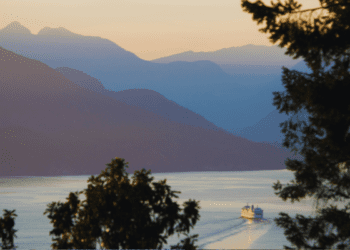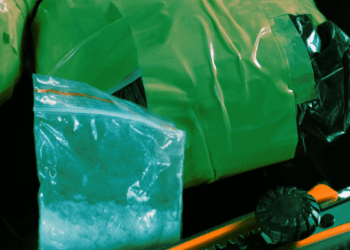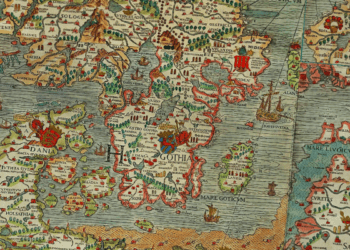This article originally appeared in the Hill Times.
By Ken Coates and Carin Holroyd, December 6, 2023
In decades past, Canada was a true leader in northern innovation, capitalizing on scientific discoveries and technological developments to improve economic and social opportunities in our vast northland. The country led in the development of bush planes, celebrated the snow machines built by Bombardier, and made impressive improvements in northern communications. The country was proud of its Arctic regions and collectively impressed with Canadian efforts to expand its presence in the North.
This work was underpinned by a long-term commitment to Arctic science, innovations in mining and transportation, and steady efforts to improve economic and societal opportunities. From the 1950s to the 1970s, spurred on the Roads to Resources program of then-prime minister John Diefenbaker’s government, Canada developed experimental communities like Inuvik, built substantial company towns from Labrador to the Yukon, explored for oil and gas in the Far North, and attracted global attention for its Arctic economic developments.
The resource economy remains central, with mining development expanding but oil and gas exploration abating. Most of the Arctic company towns have been shuttered; several have been dismantled. In contrast, Norway and Russia identified and exploited vast Arctic oil and gas reserves, sparking a rapid growth of the North’s population. Norway’s oil-based sovereign wealth fund, with more than $1.5-trillion in investments, underpins the country’s world-leading social welfare system. Northern Norway’s general prosperity is a sharp contrast to the socio-economic challenges in the Canadian North.
Northern Scandinavia surged ahead. Major universities opened in Oulu, Finland; Luleå, and Umeå in Sweden; and Bodø and Tromsø in Norway. The University of Alaska’s system is more than a century old, with large research campuses in Fairbanks and Anchorage. In contrast, Canada’s first university north of the 60th parallel opened in the Yukon only a few years ago, and the small network of northern colleges is dwarfed by the impressive Scandinavian institutions.
The Scandinavian North has assumed Arctic leadership. Svalbard, in northern Norway, is one of the most science-intense communities in the Far North. Tromsø, the self-proclaimed “capital” of the European North, is a prosperous, innovative, and creative city with the best university in the circumpolar world. Northern Sweden hosts an important space research centre in Kiruna, a major battery factory in Skellefteå, and a data-centre industry in Lulea. Oulu in Northern Finland suffered through the collapse of Nokia, the cellphone company, but re-emerged as an impressive centre for technology-based commercial innovation.
This pattern of contemporary development expanded further. The Faroe Islands are economically creative and culturally vital. Greenland has improved its commercial fishing operations and made large investments in transportation infrastructure to support a rapidly growing tourism industry. Alaska’s economy rests on a still-strong fossil fuel sector, and a large and robust military presence. The steady improvement of regional services and infrastructure has modernized the circumpolar cities, provided a solid base for entrepreneurship, and improved regional well-being.
The Soviet Union (later Russia) also expanded aggressively in its Arctic regions. The authoritarian state made massive investments in the region, launched initially with the construction of a large number of internment camps for political prisoners. Unfettered by environmental or ethical standards, or concern for Indigenous people, Russia has, in recent decades, made major investments in Arctic development.
The Russian effort is not desirable and has had drastic ecological consequences. While Canada dithered on improving infrastructure in the High Arctic, Russia opened a series of commercial ports along the Northeast Passage, and developed a floating nuclear power plant to support aggressive resource development plans. These economic efforts were more than matched by massive military investments, strategic commitments that Canada has also avoided.
At present, the three territorial capitals—Iqaluit, Yellowknife, and Whitehorse—are state-dominated centres, with strong local economies and considerable growth pressures. The smaller settlements, unlike their Scandinavian counterparts, experience severe housing shortages, often inadequate infrastructure, extremely high costs, and limited economic development beyond occasional mineral developments. The gap between general Canadian prosperity and northern realities grows larger, not smaller, and northern communities struggle to build sustainable futures beyond dependence on government.
Northern Canada struggles against a wide variety of geographic and economic hurdles. While Indigenous governments’ economic development corporations have enjoyed considerable success and manage substantial funds from land claims settlements and resource revenue agreements, the constraint on commercial innovation remains extremely strong. The Yukon has the greatest potential. Whitehorse is recognized as one of the best cities in Canada in which to do business. Yukon Premier Ranj Pillai just released a comprehensive innovation strategy that recognizes the territory’s need to grow beyond its dependence on government spending and to promote private sector growth. The commitment is impressive, even if the barriers to success are real and substantial.
Northern Canada is not without its impressive achievements in technological innovation and commercialization. The most prominent examples can be found in the mining sector, long a Canadian strength, where improvements in drone-based exploration, remote mining operations, environmental sensors, and new extraction methods are among the best in the world. But Canada’s leadership in circumpolar innovation has faded in recent decades, an illustration of the country’s inability to embrace its northern responsivities and capitalize on Arctic opportunities. As a northern nation, Canada lags far behind in technological and entrepreneurial development.
Ken Coates is a professor of Indigenous governance at Yukon University, and formerly the Canada Research Chair in Regional Innovation in the Johnson-Shoyama Graduate School of Public Policy. He is also a distinguished fellow with the Macdonald-Laurier Institute in Aboriginal and Northern Canadian Issues. Dr. Carin Holroyd is a professor of political studies at the University of Saskatchewan and holds degrees from universities around the world, including Sophia University in Japan. She has a long-standing interest in Japan-Canada commercial relations and the dynamics of international trade and investment, focusing on Japan and East Asia.






